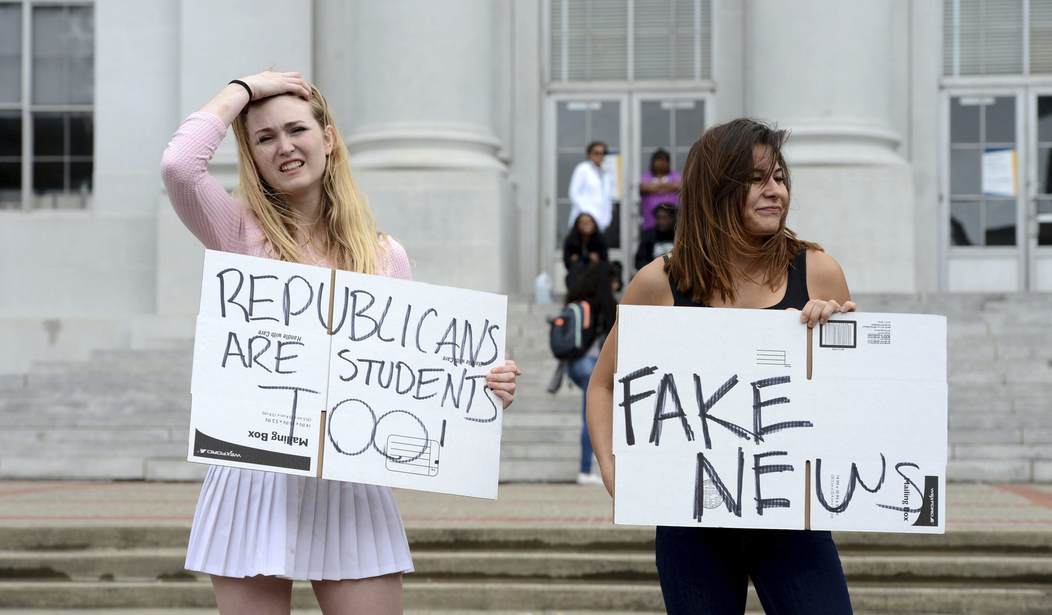When I was a sophomore at Barnard College, a women’s college in NYC under the Columbia University umbrella, I applied to become a columnist with the Columbia Daily Spectator. During the interview, the editors asked me what I hoped to write about. As the first person in my family to graduate from high school, I knew how to play this card. “Social inequality and labor issues,” I said, invoking the spirit of Columbia’s longstanding social justice tradition. Needless to say, I got the position.
But instead of focusing on social justice in the traditional way, I focused on something else — the dangers of feminism, misleading sexual assault statistics, and the lack of due process for men in campus rape trials. I wrote columns arguing that Columbia should offer a course in men’s studies, and that students shouldn’t report microaggressions. Sure, women face problems in society, but men do too. Shouldn’t we care about them?
The backlash was swift. Perhaps I went into it too naively. After all, I was a student at a women’s college, a hotbed of militant feminism. I should have expected it. But after a while, the angry comments and diatribes students emailed me gave way into something more pernicious — being targeted on campus.
Students started yelling, quite literally, when they saw me on campus. One student followed me around twice in the local grocery store, trying to accost me. They’d come up to me at my campus desk job, demanding an apology for what I’d written. One student would take pictures of me when she saw me at the library. Then, the death threats came in. Not from strangers on the internet, but from fellow students.
Not wanting to appeal to authority, I didn’t report them. I sucked up my pride. After all, harassment based on political ideology isn’t covered in my school’s non-discrimination clause, and I worried that reporting the harassment could backfire. What if students decided to file a Title IX complaint against me for what I wrote?
Indeed, I had already been familiar with the case of Laura Kipnis, who suffered a Title IX complaint after writing an essay on sexual paranoia for The Chronicle of Higher Education. Some students invoked the specter of a Title IX complaint, threatening to report me for creating a “hostile environment” on campus.
Needless to say, my experiences aren’t unique, at least for outspoken conservative and libertarian students on campus. As the rates of targeted harassment of gay and transgender students has fallen, students who don’t conform to left-liberal ideology face harassment at rising rates. When I first started getting death threats, I thought I was alone. It wasn’t until I started meeting other outspoken conservative students that I realized that the experience was de rigueur.
Ashley Rae Goldenberg, a popular libertarian journalist, faced death threats from peers when she was a student at George Mason University. Kassy Dillon, a student at Mount Holyoke, was tracked down by peers on election night and was verbally assaulted. Marisa Ricchey, a student at UT-Knoxville, saw her service dog get kicked after someone on campus saw her pro-Trump pin. These are just a few cases. There are dozens more that have been covered by the media, and even more that don’t break news.
Likewise, as websites like Campus Reform and The College Fix report — harassment that students face has rise precipitously since the election. One pro-Trump student, 18-year-old Andi Moritz, was forced to flee Boston University after facing relentless harassment from her peers. Her only crime? Asking for a ride to a Trump rally so she wouldn’t have to carpool with a guy she didn’t know well.
How can this be fixed? Colleges should add political ideology to the lists of protected classes. Right now, only the University of Colorado lists “political affiliation” and “political philosophy” on their non-discrimination clause. Conservative kids at other colleges are out of luck. These non-discrimination clauses aren’t for naught. They set the tone for campus culture, and provide the impetus for sanctions if a minority is targeted on campus. (Conservatives, we often forget, are a minority on many college campuses too.)
In adding political ideology to non-discrimination clauses, conservative college kids would be helped in three major ways. First, adding political ideology to non-discrimination statements would set the tone for campus culture. When freshmen arrive during orientation, they are often schooled on “diversity and inclusivity.” Ideological diversity is a fundamental aspect of campus diversity, regardless of whether liberals will admit it or not.
Conservative students would also learn that harassment is unacceptable, and that they could report it if and when they find themselves targeted. When I received death threats from my peers, one of the reasons why I didn’t report them was because I didn’t think the administration would care. In retrospect, I probably should have reported a few of them. While most students just sent me an angry email or two, a few engaged in prolonged harassment spanning a few months, stretching into the summer break. Nothing happened, but I should have gone with my gut instinct.
Finally, adding political ideology to non-discrimination clauses would help set a cultural precedent that condemns harassment of conservatives. Elite colleges help drive culture. After graduation, students take the values they learn on campus into the workplace and into the media. Ever wonder why the Emmys are rife with identity politics? That’s why.
The cultural values learned in college colonize all other aspects of American life. That’s why colleges should step up to the plate. If people don’t learn that harassing conservatives isn’t OK while in college, will they ever learn?
Toni Airaksinen is a senior at Barnard College in NYC. She no longer writes for the Columbia Daily Spectator, but for PJ Media and Campus Reform. Follow her on Twitter: @Toni_Airaksinen.










Join the conversation as a VIP Member